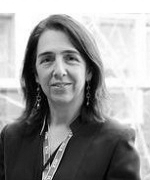Bio-based circular recovery model for sustainable urban economies – an agenda for local and global achievements
This project proposes to explore a bio-based circular recovery model for sustainable urban economies using the city of Curitiba, Brazil, as a starting point. The project aims at theoretical and applied results. Our proposition extrapolates upon existing knowledge and proven solutions, and the city´s social schemes to develop a model for interconnection of activities to improve circularity in organic resource utilization in the urban environment and promote sustainable development. We use a bottom-up approach linking urban food production with efforts to promote waste recovery thus generating nutrients and energy. The bio-based circular recovery model (BCR-model) links social and environmental agendas at local level and serve to guide municipalities when addressing solid waste management problems. The benefits can be global (e.g. greenhouse gas emissions reductions) and local in the form of reduced air and water pollution, and improved food security, income generation and public health. The project is developed under the strategic collaboration of Sweden and Brazil, the MoU between KTH and the City of Curitiba, and counts with the support of a consortium of Swedish and Brazilian organizations within academia as well as public and private sectors. The project is funded by FORMAS (2018-2021) and led by the Division for Energy and Climate Studies at the Department of Energy Technology, KTH.
Contact person:

